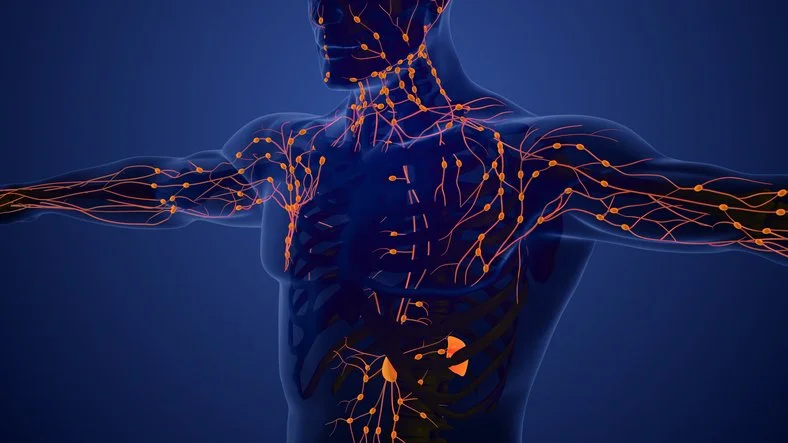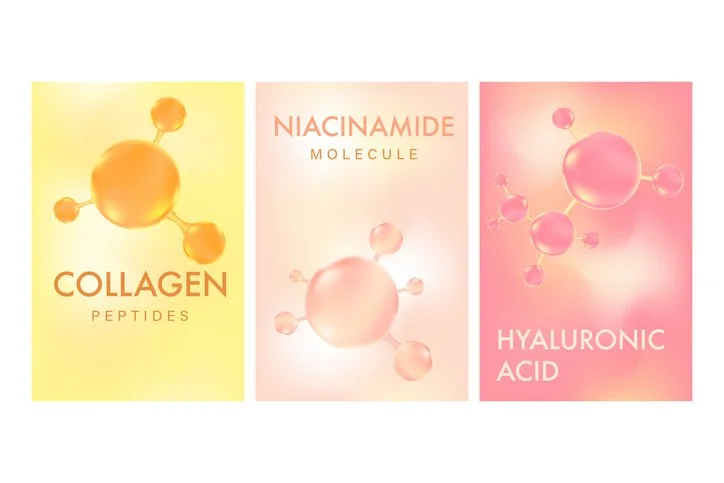How Your Body Actually Heals Part 3
What Are Peptides? A Complete Guide to Peptide Therapy
(Part 3 of a 4-Part Series on Cellular Health and Nervous System Regulation)
By: Joy Stephenson-Laws, Holistic Coach, J.D., Founder
Catch up on the series:
Part 1: The Foundation Most People Get Wrong — Nervous system regulation, sleep, hydration, nutrition, movement, and stress management
Part 2: The Building Blocks — What supplements actually do and when you need them
Walk into any wellness clinic today and you'll hear people talking about peptides. BPC-157 for healing. Collagen peptides for skin. GLP-1 peptides for weight loss. The peptide world has exploded — and it's not just hype.
Peptides are becoming one of the most important tools in modern medicine, from anti-aging to gut repair to brain health. But here's what most people don't understand: your body has been making and using peptides your entire life.
So what exactly are peptides? Why does everyone suddenly care? And most importantly — what do you need to know to stay safe and informed?
In Part 1, we talked about foundation — the environment your body needs to heal. In Part 2, we talked about building blocks — the raw materials like vitamins, minerals, and amino acids. Now in Part 3, we're talking about the messengers — the signals that tell your body what to do with those materials.
Let's break it down.
What Are Peptides? Think of Them as Your Body's Text Messages
Peptides are short chains of amino acids. Remember from Part 2 that amino acids are the building blocks your body uses to make protein. If proteins are long paragraphs, peptides are short sentences — quick, targeted, and powerful.
Here's the key: peptides are messengers.
Your body makes thousands of peptides every single day. They travel through your bloodstream, delivering instructions to your cells. Those instructions might say:
"Heal this injured tissue."
"Build more collagen here."
"Reduce inflammation in this area."
"Burn fat for energy."
"Support the immune system."
Peptides don't do the work themselves. They tell your cells what to do. That's why they're so powerful — they influence almost every major system in your body.
How Peptides Fit Into the Bigger Picture: The Hierarchy
Let's connect this back to what we've already covered, because understanding the relationship between amino acids, peptides, and proteins is critical.
The hierarchy looks like this:
Individual amino acids (the smallest units — the LEGO bricks)
↓
Peptides (short chains of 2-50 amino acids — small LEGO creations)
↓
Proteins (long chains of 50+ amino acids — complex LEGO structures)
They're all made from the same pieces. The difference is how many amino acids are connected and what job they do.
What Happens When You Eat Protein
When you eat a chicken breast or a bowl of beans, here's what your body does:
Your stomach acid and digestive enzymes break the protein down into peptides (short chains)
More enzymes break those peptides into individual amino acids
Your intestines absorb both the peptides and amino acids into your bloodstream
Your cells use those amino acids to build whatever proteins your body needs right now — muscle tissue, enzymes, collagen, antibodies, hormones
So peptides are essentially pre-digested protein fragments.
Your body naturally creates peptides during digestion. But it also makes specific peptides on purpose to send targeted signals — like "grow new blood vessels here" or "reduce inflammation in this tissue."
Why This Matters as You Age
Here's the problem: as you get older, deal with chronic stress, or experience trauma, two things happen.
First, your digestion weakens. You produce less stomach acid, fewer enzymes, and your gut lining may be damaged (remember Part 1 — you can't heal your gut without healing your nervous system). That means you can't break down dietary protein into peptides and amino acids as efficiently. Even if you're eating enough protein, you're not absorbing it well.
Second, your body produces fewer signaling peptides. The chemical messages that tell your cells to heal, build, and repair become scarce. That's why healing slows down, inflammation lingers, and your skin, joints, metabolism, and energy suffer.
If you're doing everything "right" and still struggling with slow healing or persistent inflammation, this declining peptide production might be part of the answer — and understanding that can be both validating and empowering.
Peptide therapy gives you a bypass. You're delivering ready-made signaling molecules your body would normally have to create itself. You're hand-delivering the most important messages directly to the cells that need them — without relying on a digestive system or cellular machinery that may be struggling.
It's not about adding something foreign. It's about restoring communication your body used to handle effortlessly.
The Problem: Your Body Makes Fewer Peptides as You Age
Here's the hard truth: as we age, deal with chronic stress, experience trauma, or push our bodies too hard, we naturally produce fewer peptides.
That means:
Slower healing after injuries.
More inflammation that won't go away.
Thinner skin and weaker joints.
Sluggish metabolism.
Brain fog and memory problems.
Gut issues that linger.
A worn-down immune system.
Peptide therapy is simply a way of restoring the messages your body used to send effortlessly.
It's not about adding something foreign. It's about amplifying what your body already knows how to do.
But here's what connects back to Parts 1 and 2: peptides only work well when your foundation is solid and you have adequate building blocks.
If your nervous system is dysregulated (Part 1), your cells won't respond to peptide signals properly. If you're deficient in key nutrients (Part 2), your body gets the instruction but lacks the materials to execute it.
Think of it this way: peptides are like a contractor shouting instructions to build a house. But if the workers are exhausted and stressed (dysregulated nervous system), and there's no lumber or nails in the warehouse (nutrient deficiencies), the instructions are useless.
You need all three layers working together: foundation, building blocks, and signaling.
What the Science Actually Says: Peptides That Work
Let's look at the research. These aren't marketing claims — these are peer-reviewed studies from respected medical journals and the National Institutes of Health.
Want to Heal Faster from Injuries? BPC-157 Shows Promise
BPC-157 is one of the most promising healing peptides in current research, though it's important to be honest: most studies to date have been conducted in animals rather than humans. Still, the results are compelling.
Research shows it helps with tendon and ligament repair, gut lining restoration, reduced inflammation, and faster wound healing. A 2024 study in Frontiers in Pharmacology found that BPC-157 promotes tissue regeneration by helping your body grow new blood vessels and reducing damage from stress. Animal studies from the NIH show it speeds up healing in muscles, tendons, and intestinal tissue.
We need more human trials to fully understand effectiveness and safety. But many practitioners are seeing real-world results in clinical practice, especially for people dealing with chronic injuries or gut damage that won't heal.
Looking for Healthier Skin and Joints? Collagen Peptides Have Strong Evidence
Collagen peptides work by telling your skin cells to make more collagen and elastin — the proteins that keep skin firm and joints flexible.
The research here is clear. A study in the Journal of Drugs in Dermatology found that people taking collagen peptides had significantly better skin elasticity and hydration. A 2021 NIH review showed that oral collagen peptides improved skin thickness, reduced wrinkles, and supported joint health.
This is why you now see peptides in everything from anti-aging creams to joint supplements. And unlike many peptides, collagen peptides can be taken orally because they're specifically designed to survive digestion. They're one of the most accessible and well-researched peptide options available.
Struggling with Metabolism and Weight? GLP-1 Peptides Are Getting Remarkable Results
GLP-1 peptides (like Semaglutide and Tirzepatide) help regulate appetite, blood sugar, and inflammation.
The data is striking. A major trial in the New England Journal of Medicine found that Semaglutide helped people lose an average of 15% of their body weight. A 2022 study in Nature Medicine showed these peptides also reduced inflammation markers and improved heart health.
These peptides were originally developed for diabetes, but they've become frontrunners in metabolic health and weight management.
But here's what the research also shows: peptides work best when combined with lifestyle changes. You can't peptide your way out of chronic stress, terrible sleep, and a processed food diet. The foundation still matters. These peptides amplify your efforts — they don't replace them.
Need Immune Support? Thymosin Peptides Show Promise for Chronic Conditions
Thymosin Alpha-1 and Thymosin Beta-4 are peptides that support your immune system and help repair tissue.
A 2023 analysis in Frontiers in Immunology found that Thymosin Alpha-1 strengthens T-cells (your immune fighters) and helps balance inflammation. Thymosin Beta-4 research shows improved heart healing and reduced scar tissue formation.
These peptides are being studied for autoimmune diseases, chronic infections, and long-term inflammation — conditions where the immune system needs support getting back into balance.
Brain Fog, Memory Issues, or Burnout? Neuropeptides Are Being Researched
Neuropeptides like Selank, Semax, and Dihexa are showing promise for memory improvement, brain plasticity (your brain's ability to adapt and grow), better focus and attention, and recovery from stress or mild brain injury.
Studies published in Behavioural Brain Research show that Selank reduces anxiety and improves how the brain processes information. NIH-funded research on Dihexa highlights its potential to help the brain form new connections — critical for learning and memory.
This matters in a world where chronic stress and burnout are everywhere. These peptides are still being researched, but early results suggest they may help support cognitive function when stress has taken its toll.
Gut Issues That Won't Resolve? Peptides Can Help Rebuild Your Gut Lining
The intestinal epithelium — your gut's protective barrier — is remarkably thin, essentially one cell layer thick. That means it's incredibly vulnerable to stress, medications, alcohol, processed foods, and trauma. Certain peptides help rebuild that protective barrier.
BPC-157 has strong evidence for repairing intestinal damage, reducing gut inflammation, and improving digestion. A 2023 review in Nutrients found that specific collagen peptides significantly reduce gut inflammation and support a healthy microbiome.
If you struggle with acid reflux, IBS, diarrhea, constipation, or leaky gut, this research matters.
And remember from Part 1: you can't heal your gut without healing your nervous system. Peptides can help rebuild the physical barrier, but if you're stuck in chronic fight-or-flight, your gut will keep breaking down. The foundation has to come first.
Are Peptides Safe? What You Need to Know
Peptides mimic molecules your body already makes. When used correctly and under medical supervision, they are generally safe, have a low risk of serious side effects, and break down naturally after your body uses them.
But here's the critical part: not all peptides are created equal.
It's also important to set realistic expectations. Peptides cannot reverse decades of damage overnight, and individual responses vary significantly. What works powerfully for one person may have minimal effect for another. Factors like your overall health, genetics, lifestyle, and the specific condition you're addressing all influence outcomes. This is why medical supervision matters — a good provider will monitor your progress and adjust protocols based on your unique response.
Why Most Peptides Can't Be Taken Orally (And Which Ones Can)
Here's something most people don't understand: you can't just swallow most therapeutic peptides like you would a vitamin.
Remember how we talked about digestion in Part 2? Your stomach acid and digestive enzymes are designed to break down proteins into smaller pieces. When you swallow a therapeutic peptide, your digestive system sees it as protein and immediately starts dismantling it.
Think about what happens when you eat a steak. Your body doesn't absorb "steak" — it breaks it down into amino acids and peptides first, then absorbs those smaller pieces. The same thing happens with therapeutic peptides. If you swallow BPC-157, your body treats it like food and dismantles it. By the time it reaches your bloodstream, it's just random amino acids — the specific healing message is gone.
The peptide gets shredded into individual amino acids before it ever reaches your bloodstream. At that point, it's just amino acids — it's lost the specific sequence and structure that made it a signaling molecule.
That's why most therapeutic peptides require injection — subcutaneous (under the skin) or intramuscular. It bypasses digestion entirely and delivers the intact peptide directly into your bloodstream.
The Exception: Some Peptides CAN Be Taken Orally
There are a few peptides designed to survive digestion or work locally in the gut.
Collagen peptides are specifically hydrolyzed (pre-broken down) into very small, stable fragments that can survive the digestive process, get absorbed through the intestinal wall, and enter the bloodstream intact or as small peptide chains. That's why collagen peptide powders and drinks actually work. The science backs this up — oral collagen peptides do improve skin, joints, and gut health.
BPC-157 (sometimes) — some research suggests BPC-157 might be stable enough to survive stomach acid and work locally in the gut when taken orally. The evidence is mixed, but some practitioners use oral BPC-157 specifically for gut repair.
Certain probiotic peptides — some bacterial strains produce peptides that can survive digestion and have local effects in the gut.
But for most therapeutic peptides — the ones for systemic healing, immune support, brain function, or metabolism — injection is necessary.
How Chronic Stress Suppresses Peptide Effectiveness
Here's where everything we've covered in this series comes together.
Even when you take therapeutic peptides, a dysregulated nervous system can blunt their effectiveness.
When you're stuck in chronic fight-or-flight (Part 1), your body prioritizes immediate survival over long-term repair. It produces fewer healing peptides. It diverts resources away from regeneration. And even when peptides are present — whether your body made them or you supplemented with them — your cells don't respond as well to the signals.
It's like trying to have a conversation with someone who's in the middle of a panic attack. They can hear you, but they can't process what you're saying because their nervous system is in threat mode.
This is why peptide therapy works best when combined with:
Nervous system regulation (Part 1) — Feel-Pause-Act, trauma therapy, breathwork, safe relationships
Adequate nutrients (Part 2) — the building blocks your cells need to respond to peptide signals
Proper foundation — sleep, hydration, whole food nutrition, movement, stress management
You're not just giving your body the message. You're creating the internal environment where your cells can actually hear and respond to it.
The Wild West of Peptides: Legal and Ethical Red Flags
The peptide industry has exploded so fast that regulation hasn't caught up. That creates serious risks.
What You Need to Watch Out For:
Unregulated sources. Many peptides sold online or through unlicensed vendors are not tested for purity, potency, or safety. You could be buying contaminated products, incorrect doses, or even fake substances.
Compounding pharmacy issues. In 2023 and 2024, the FDA took action against certain compounded peptides due to safety and quality concerns. Legitimate compounding pharmacies follow strict standards — but not all do.
Social media misinformation. Influencers and wellness gurus are promoting peptides without medical training, often making exaggerated claims or encouraging people to self-dose.
Self-administration risks. Some peptides require injection. Without proper training, you risk infection, incorrect dosing, or dangerous side effects.
How to Protect Yourself:
Only work with licensed healthcare providers. A qualified doctor, naturopath, or functional medicine practitioner should evaluate your health, order appropriate labs, and monitor your progress.
Ask about the source. Your provider should use peptides from FDA-registered facilities or reputable compounding pharmacies that follow USP standards.
Be skeptical of miracle claims. If someone promises peptides will "cure" a disease or "reverse aging completely," walk away. Real medicine is more nuanced.
Know what you're taking and why. Ask for clear explanations, written protocols, and information about potential side effects.
Bottom line: Peptides are powerful tools, but they require respect, knowledge, and proper medical guidance. This is not a DIY situation.
How Peptides Fit Into Holistic Health
Peptides are not magic bullets. They're precision tools.
True holistic health looks at the whole person — your physical body, your emotional state, your stress levels, your relationships, your environment. It recognizes that everything is connected. You can't separate your gut health from your nervous system. You can't separate your physical healing from your emotional safety.
This means addressing:
Nutrition that nourishes your cells.
Sleep that allows your body to repair.
Stress management and nervous system regulation.
Emotional health and trauma healing.
Movement that strengthens without depleting.
A safe, supportive environment.
High-quality supplements when needed (Part 2).
Targeted peptides when signaling needs support (Part 3).
Peptides fit into this picture as amplifiers. They help rebuild the systems you're already supporting through lifestyle. They don't replace the foundational work — they enhance it.
Think of it this way: you can't peptide your way out of chronic stress, terrible sleep, and a processed food diet. But if you're doing the work and still struggling with stubborn inflammation, slow healing, or metabolic issues, peptides may offer the targeted support your body needs to finally break through.
Why This Matters: Peptides Are Shaping the Future of Medicine
You don't need to become a peptide expert. But you do need to understand the basics — because this field is changing healthcare.
Peptides are being researched for:
Regenerative medicine and faster healing.
Longevity and healthy aging.
Trauma recovery (physical and neurological).
Metabolic diseases like diabetes and obesity.
Cognitive decline and memory loss.
Autoimmune conditions.
Post-surgical recovery.
Gut repair and digestive health.
Skin aging and wound healing.
Mood disorders and anxiety.
If you care about prevention, aging with vitality, and taking an informed role in your health, peptides deserve your attention.
Bringing It All Together: Foundation, Building Blocks, and Signaling
Let's review what we've covered in this series so far:
Part 1: Foundation — Your nervous system state, sleep, hydration, nutrition, movement, and stress management create the environment where healing can happen. Without this foundation, nothing else works.
Part 2: Building Blocks — Vitamins, minerals, amino acids, and other nutrients provide the raw materials your cells need to build, repair, and function. Food should be your primary source, but targeted supplementation fills real gaps.
Part 3: Signaling — Peptides are the messengers that tell your cells what to do with those building blocks. As you age or experience chronic stress, your body produces fewer peptides. Therapeutic peptides restore communication your body used to handle effortlessly.
Here's the key: all three layers work together.
Foundation without building blocks means you have a safe environment but no materials to build with.
Building blocks without signaling means you have materials but no instructions.
Signaling without foundation means your body gets the message but can't respond because it's stuck in survival mode.
When you address all three layers, that's when real, lasting healing becomes possible.
What's Coming in Part 4
In the final part of this series, we'll tie everything together.
We'll dive deep into why emotional safety is physical medicine. Why nervous system regulation isn't just about feeling calm — it's about creating the biological conditions where foundation, building blocks, and signaling can actually work.
You'll get a complete toolkit for nervous system regulation that goes far beyond Feel-Pause-Act. We'll explore the trauma-body connection, practical tools for healing, and how to create the safety your body needs to shift from survival mode into repair mode.
Because here's the truth: you can have the best foundation, the highest-quality supplements, and the most advanced peptide therapy. But if your nervous system doesn't feel safe, your body will resist all of it.
Part 4 is where everything clicks into place.
What You Need to Remember
Peptides are short chains of amino acids that act as messengers in your body.
Your body naturally makes fewer peptides as you age, experience stress, or deal with trauma.
Research supports peptides for healing, skin health, metabolism, immunity, brain function, and gut repair.
Peptides are generally safe when used under proper medical supervision.
Most therapeutic peptides require injection because digestion destroys them (exception: collagen peptides).
The peptide industry is largely unregulated — work only with licensed providers using high-quality sources.
Chronic stress and nervous system dysregulation reduce peptide production and cellular response.
Peptides work best when combined with solid foundation (Part 1) and adequate nutrients (Part 2).
Peptides are tools, not magic — they amplify the work you're already doing, they don't replace it.
You need all three: foundation (environment), building blocks (materials), and signaling (instructions).
This article is for educational purposes only and does not constitute medical advice. Always consult a qualified healthcare provider before starting any new treatment, including peptide therapy.
Research References
Sikiric P, et al. "BPC 157 and Standard Angiogenic Growth Factors. Gastrointestinal Tract Healing, Lessons Learned and Therapeutic Implications." Frontiers in Pharmacology, 2024.
National Institutes of Health. "BPC-157: Tissue Repair and Regeneration Studies." NIH Database, multiple animal studies 2018-2024.
Proksch E, et al. "Oral supplementation of specific collagen peptides has beneficial effects on human skin physiology: a double-blind, placebo-controlled study." Journal of Drugs in Dermatology, 2014.
Choi FD, et al. "Oral Collagen Supplementation: A Systematic Review of Dermatological Applications." Journal of Drugs in Dermatology, 2019.
National Institutes of Health. "Collagen Peptides and Musculoskeletal Health: A Systematic Review." NIH Research Review, 2021.
Wilding JPH, et al. "Once-Weekly Semaglutide in Adults with Overweight or Obesity." New England Journal of Medicine, 2021.
Jastreboff AM, et al. "Tirzepatide Once Weekly for the Treatment of Obesity." New England Journal of Medicine, 2022.
Nauck MA, et al. "GLP-1 receptor agonists in the treatment of type 2 diabetes – state-of-the-art." Nature Medicine, 2022.
Garaci E, et al. "Thymosin Alpha 1: Biological Activities, Applications and Genetic Engineering." Frontiers in Immunology, 2023.
Sosne G, et al. "Thymosin Beta 4: A Multi-Functional Regenerative Peptide." Annals of the New York Academy of Sciences, 2012.
Aloyo VJ, et al. "Behavioral and neurochemical characterization of mice deficient in the N-methyl-D-aspartate receptor GluN2A subunit." Behavioural Brain Research, 2018.
National Institutes of Health. "Dihexa and Neuroplasticity: Cognitive Enhancement Research." NIH-funded studies, 2019-2023.
Ue H, et al. "The anxiolytic-like effects of Selank peptide in animal models of stress and anxiety." Behavioural Brain Research, 2011.
Jalili M, et al. "Collagen-derived peptides in intestinal health and function." Nutrients, 2023.
U.S. Food and Drug Administration. "FDA Actions on Compounded Drug Products." FDA Safety Communications, 2023-2024.
Continue to Part 4: The Missing Piece — Why Emotional Safety Is Physical Medicine
Go Back to Part 2: The Building Blocks
Go Back to Part 1: The Foundation













